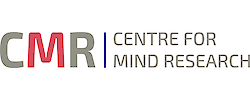Clinical addiction medicine
Management
Dr. Henrik Rohner
Background
Substance use disorders are a great burden for those affected and their relatives. In addition to physical consequences such as liver disease in the case of pathological alcohol consumption or infectious diseases such as hepatitis or HIV in the case of intravenous drug consumption, there is often a considerable deterioration in social circumstances with, for example, isolation, unemployment or homelessness or delinquency. Those affected also often face massive stigmatisation and social exclusion.
The treatment of people with dependency disorders often poses great challenges even within the field of psychiatry. People with substance use disorders still often experience premature treatment discontinuation, dysfunctional behaviour, relapses or (sometimes life-threatening) overdoses of various substances.
Aims of the working group
The main aim of our working group is to further elucidate the causes of these difficulties in the therapy of people with substance use disorders. The connections between other mental illnesses such as attention deficit hyperactivity disorder, post-traumatic stress disorder, personality disorders or psychoses and addiction disorders are the focus of our research efforts. It has been proven that substance use disorders on the one hand promote the development of mental illnesses. On the other hand, substance use disorders often develop as a consequence of other mental illnesses. The co-occurrence of these disorders also makes the treatment of those affected much more difficult. There is close cooperation with other working groups at the clinic, such as the psychotraumatology research group or the ADHD research area.
Since the Department of Psychiatry and Psychotherapy of the University Hospital Bonn on the one hand has a special ward for the treatment of people with addiction disorders and also operates the diamorphine outpatient clinic for the substitution treatment of long-term opiate addicts, another focus of our research group is to optimise the clinical care of people with substance use disorders through innovative treatment concepts and to evaluate these concepts scientifically.

















